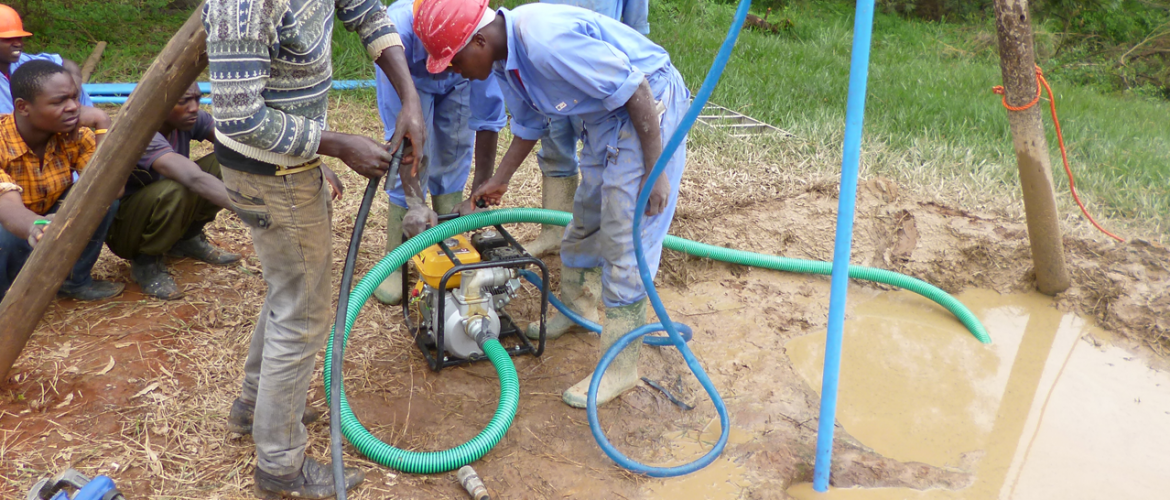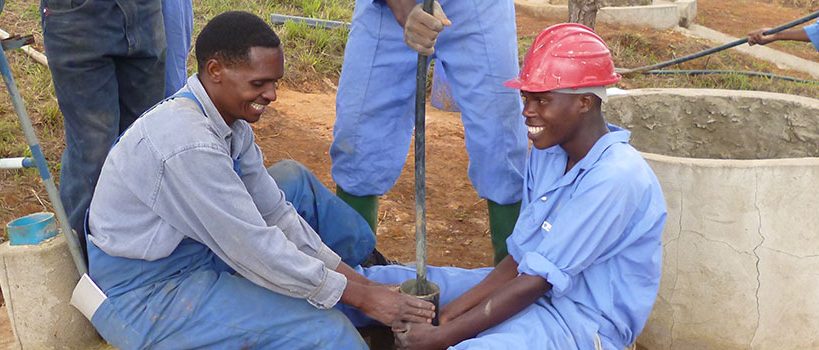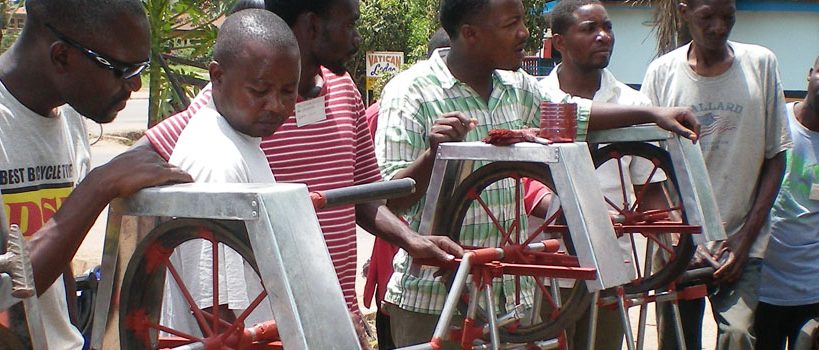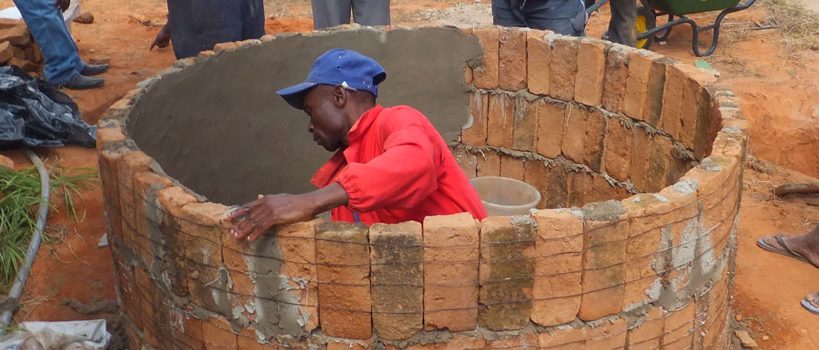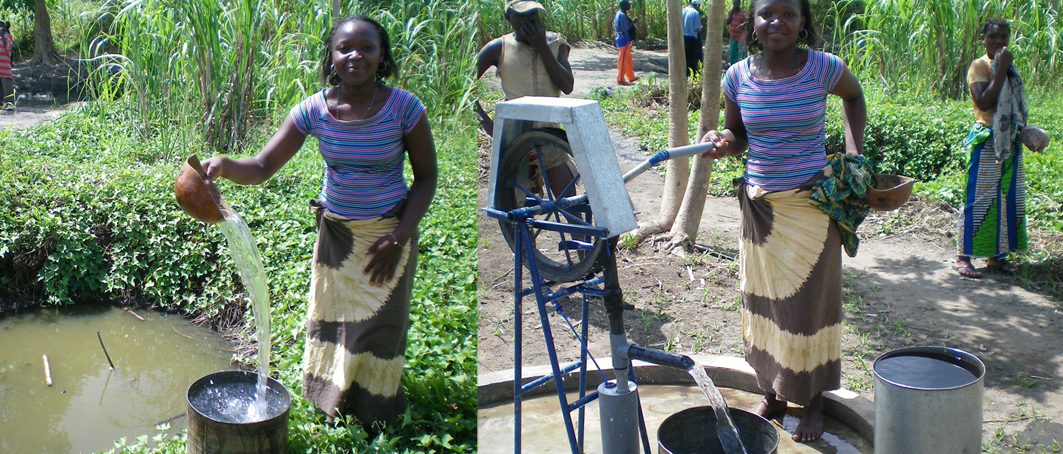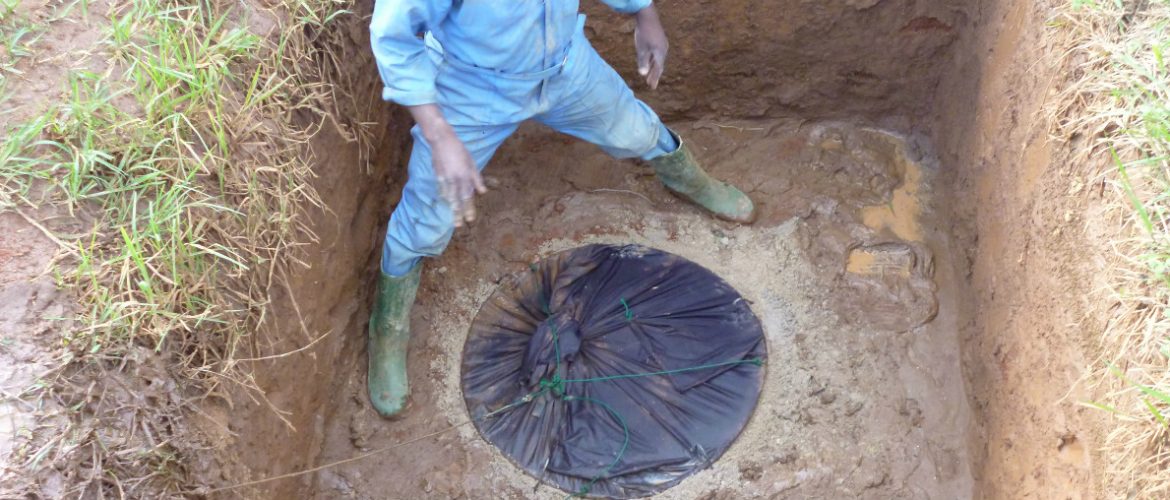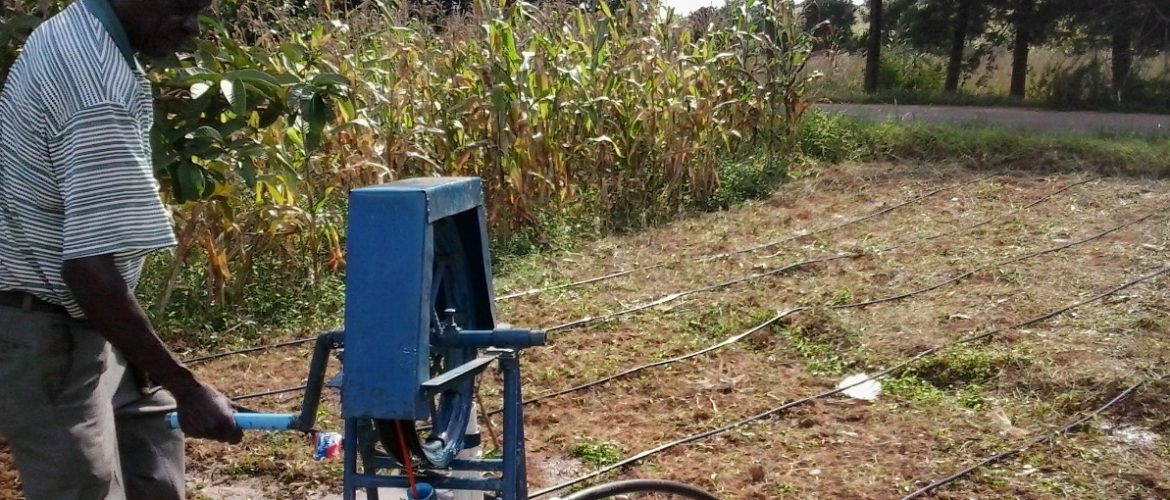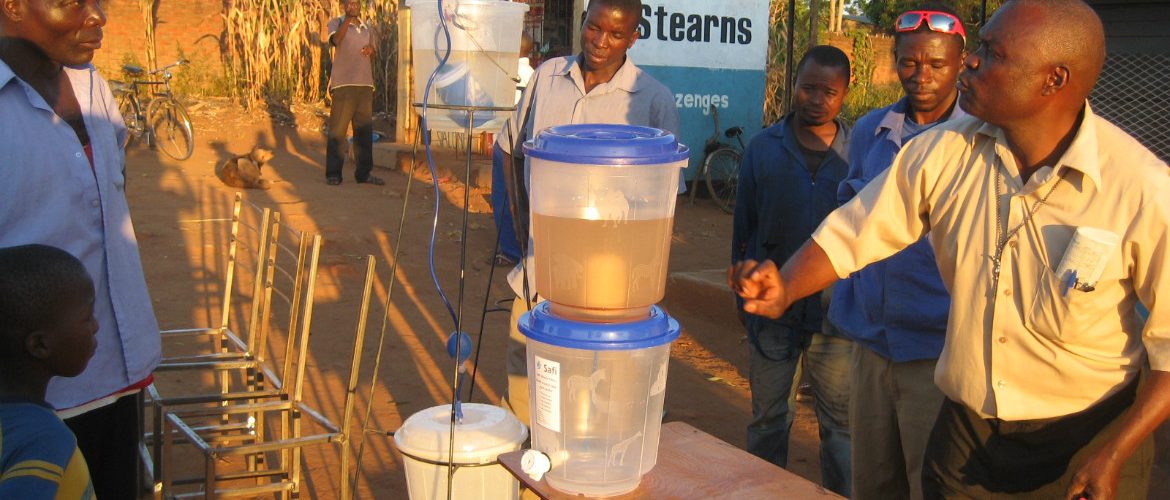Training the local private sector in
Simple, Market based, Affordable, and Repairable Technologies
The SMART Centre Group
The SMART Centre Group is a group of SMART centres. These Centres are located in Ethiopia, Kenya, South Sudan, Tanzania, Malawi, Mozambique, Zambia, Niger, and Nicaragua. These centres are coordinated by MetaMeta and apply the so called SMART approach which is a combination of:
- Innovation. market-based and low cost technologies (SMARTechs)
- Training. Build local capacity (women and men) in technical and business skills
- Self-supply. Reach the unserved with subsidies, others to invest themselves
With funds of the Dutch-government this approach was recently evaluated by IRC wich indicated that this approach reaches the SDG6.1 target group in small rural communities that are not reached with other delivery models and that it contribute to SDGs for Poverty, Food, Gender and Climate.
Also with a cost of $25/ person for CapEx, reaching SDG6.1 in these situation is 2 to 6 times less than reaching this target group with the conventional approach. The potential of the SMART approach is proven in several African countries and experiences and potential of self-supply is described in the book “Self-supply” and based on decades of field experience with failures but increasingly also success.
Our main principles are:
Quality in technologies
Most SMARTechs are simple but a hard lesson learned is; “Simple is not easy”. Details are important. Products disseminated via a SMART Centre need to be technically sound and approved by the SMART Centre Group.
Quality in training and management
Manuals for and trainers in production, installation etc. should be of good quality. Good management is essential and a SMART Centre should generate income and become self sustaining.
Cooperation
A SMART Centre cooperates with a local partner in each country, agrees with the vision and mission of the SMART Centre Group and cooperates with the other members.
To become a member of the SMART Centre Group, conditions apply;
Recording of the Virtual Side Event UN Water – ‘Supporting Self supply’ – 23 March 2023
SMART WaSH Solutions in times of Corona from TheWaterChannel on Vimeo.
Highlights
Reflection on presence at the Stockholm World Water Week
At the 2025 Stockholm Water Week the GOPA MetaMeta / SMART Centre Group presented the new "Portable solar pump" that was developed in the last 5 years by the Jacana SMART Centre in Zambia based on input of farmers. It can pump 5 - 15 cubic meters per day and in Zambia is sold now at around $220.
We also presented about "supported self-supply" in the session "Restoring landscapes through innovative finance" together with TIARA -SIWI, Tiyeni and IRHA. With examples it was shown that SDG6.1 basic service in Africa is possible at a one-time support of $25/ person in areas with >200 mm rainfall / year.
The supported self-supply model consists of:
- Use innovative low-cost technologies,
- Focus on family-owned farm wells who share water with neighbors
- Productive uses so income generation to pay for pump maintenance
The full recording of the session (and other sessions of the World Water Week) and can be seen at:
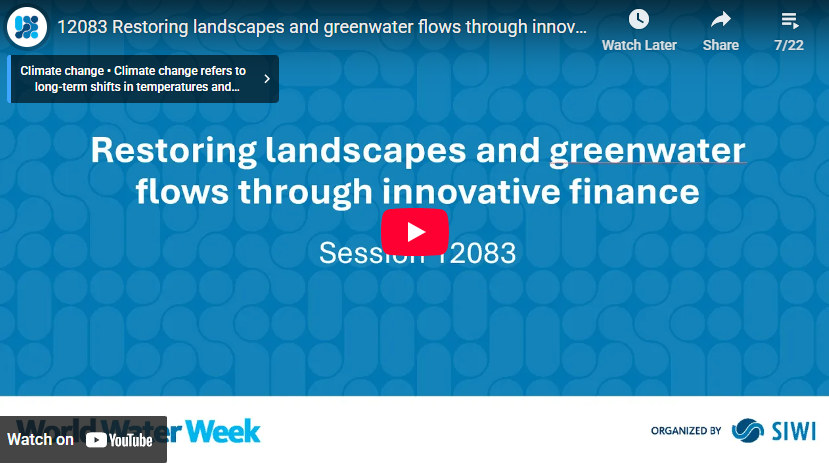
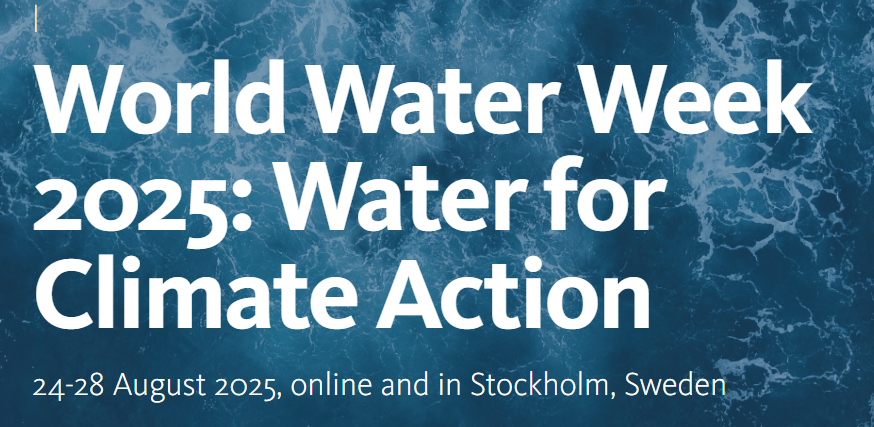
Presence at Stockholm World Water Week
The SMART Centre Group will join this year's Stockholm World Water Week, to take place fron 24 - 28 August at the Waterfront Centre in Stockholm. Together with the Jacana SMART Centre we have our own booth, in which we'll present the Portable Solar Pump and other SMARTechs and we will take part in several sessions.
The full program of the conference is available here, and you can join online for free.
The details of the sessions can be found below.
read more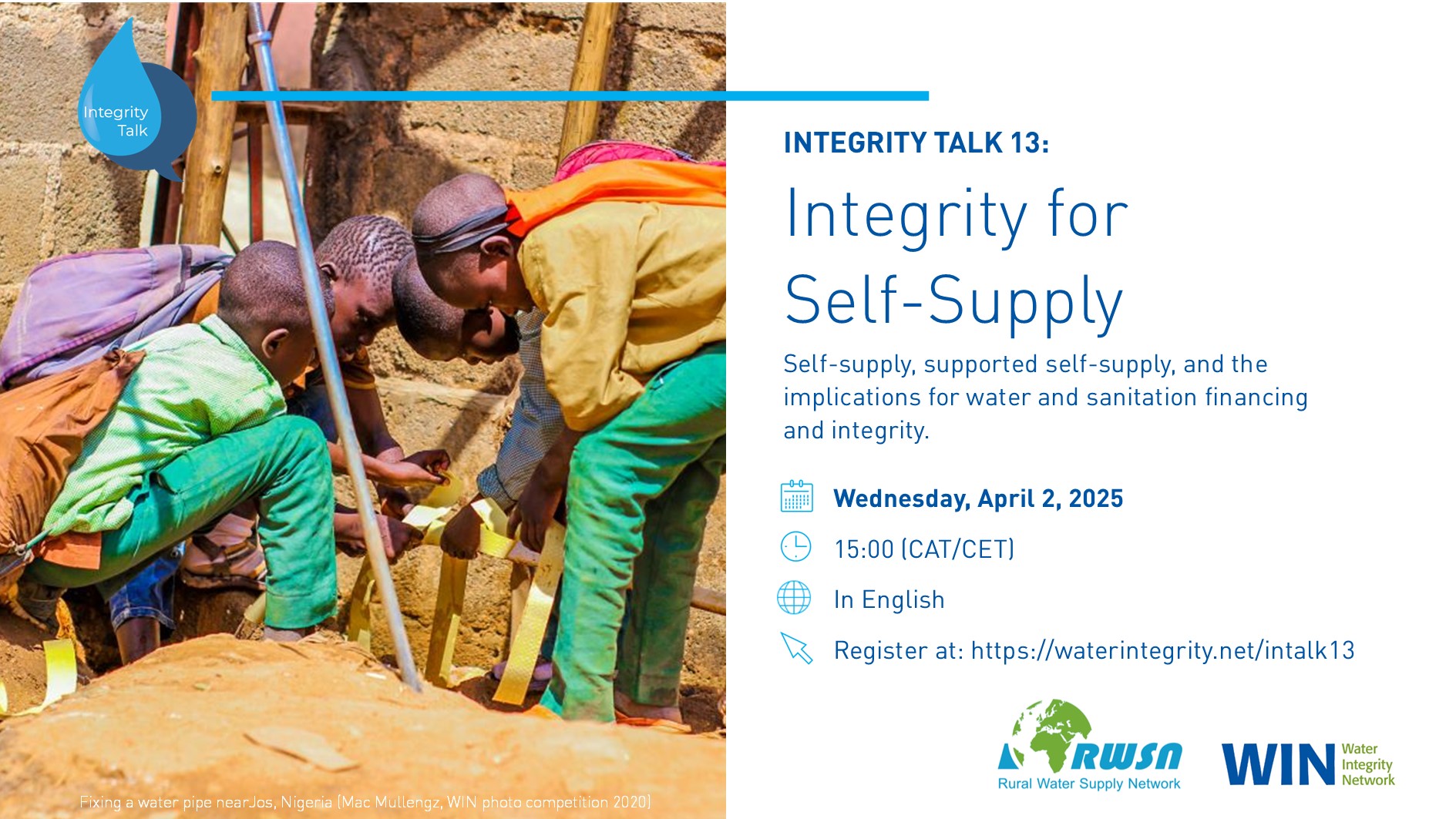
Webinar announcement – Integrity for Self-supply
On Wednesday, April 2 - 15:00 – 16:30 CEST, there will be a webinar; Integrity for Self-supply organized by the Water Integrity Network (WIN) & RWSN.
Presentations include experiences with self-supply in Africa, Asia and Finland and discuss aspects like: Transparency, Management and the Human right to water.
The webinar will include experiences how supporting self-supply can help to Leave no one behind in sub-Saharan Africa and it includes a panel discussion and ample conversation with the audience.
Enclosed a flyer and a link for information and registration Integrity for Self-supply (Integrity Talk 13) | WIN.
For more background on self-supply and supported self-supply, check the page with papers/presentations.
Interested to support or join?

